Chen Jimin, Guest Researcher, Center for Peace and Development Studies, China Association for International Friendly Contact
Jan 21, 2017
The outgoing president gets a mixed score, but a legacy for his successor to draw upon. Being a leader of multilateralism and globalization efforts has been a success that deserves emulation, but the ambivalent use of force diminished its stature as the defender of peace and stability.
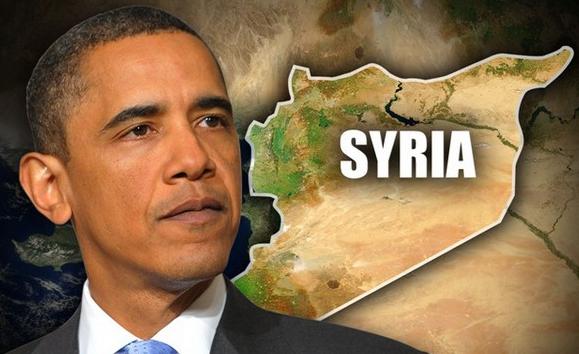
Franz-Stefan Gady, Associate Editor, Diplomat
Dec 15, 2016
President Barack Obama came into office in 2009 with roughly 180,000 Americans fighting insurgencies in Iraq and Afghanistan. The 44th President of the United States was elected to put an end to the long war and reorient U.S. defense policy away towards smaller scale operations and “national building at home.” 8 years later, what will President Barack Obama’s war legacy be?
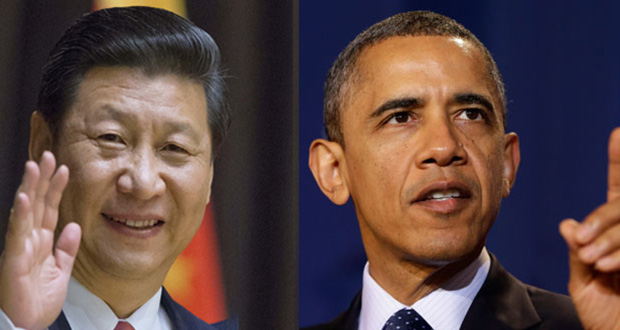
George Koo, Retired International Business Consultant and Contributor to Asia Times
Sep 23, 2016
September’s global summits saw the U.S. and China agreeing to abide by the Paris Accord on limiting emission of greenhouse gases, an influential and important step in encouraging others to follow their lead. On other issues, the two countries took divergent paths.
Chi Wang, Co-chair and President, U.S.-China Policy Foundation
Sep 09, 2016
As Monday marked the end of the G20 conference, and what was likely President Obama’s last trip to China during his tenure as president, it is impossible not to look back at his relationship with China and its leaders over the past eight years.
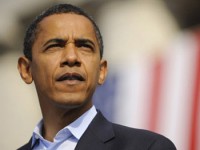
Yin Chengde, Research Fellow, China Foundation for International Studies
Apr 20, 2016
A string of achievements in his second term, even after a disastrous 2014 mid-term election, means the incumbent can be ranked among the nation’s high-achieving presidents, despite the fact that his efforts did little to change America’s outdated perspective on its place in world affairs.
George Koo, Retired International Business Consultant and Contributor to Asia Times
Aug 28, 2015
For most of his administration, Obama’s foreign policy followed the disastrous course left by his predecessor combined with his desire to offend the least number of his Congressional critics. George Koo provides four suggestions for Obama to make a positive course correction.
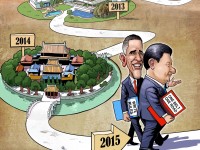
Minxin Pei, Tom and Margot Pritzker ’72 Professor of Government , Claremont McKenna College
Feb 27, 2015
The recent announcement in Washington and Beijing that Chinese President Xi Jinping will pay a state visit to the United States in September underscores the continuing momentum in the improvement of bilateral relations. Potential conversation points could be climate change, territorial disputes, and ISIS.
Chen Jimin, Guest Researcher, Center for Peace and Development Studies, China Association for International Friendly Contact
Feb 25, 2015
President Obama is very cautious in using military force. The transforming foreign policy strategy for the U.S. has been to share the cost of hegemony. For the United States, the main risk comes from the possibility of lacking confidence in U.S. strength among the allies and partners, but the strong leadership has reassured that the question is not whether the U.S. will lead, but how it will.
Richard Weitz, Senior Fellow, Hudson Institute
Feb 16, 2015
Both the responses the next U.S. Defense Secretary gave to the Senate Armed Services Committee and the latest U.S. National Security Strategy adopt a benign tone regarding China. These documents generally affirm a desire to improve overall relations and continue China-U.S. defense exchanges even while seeking greater Chinese military transparency and the peaceful resolution of China’s maritime claims in the Pacific.
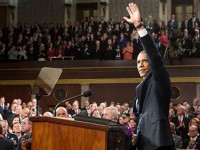
Zheng Yu, Professor, Chinese Academy of Social Sciences
Feb 06, 2015
Rather than focusing on military containment, Obama made it clear that economic competition is a priority of the U.S. It isn’t entirely negative if China and the U.S. increase economic competition, with economic interdependence dictating increased pressure for economic and technological advancement and cooperation.